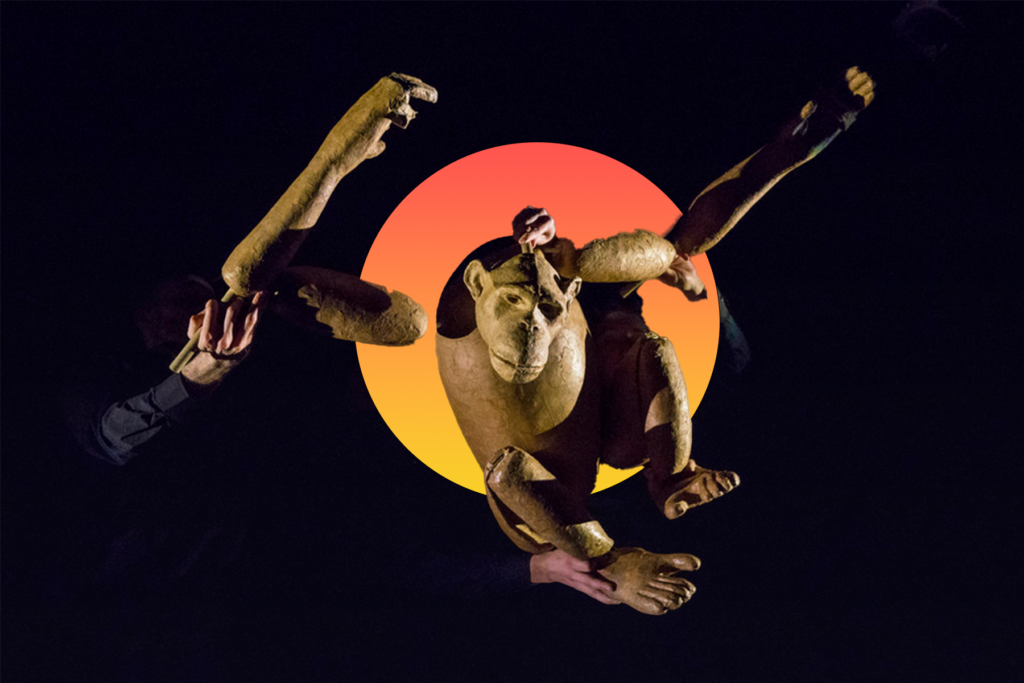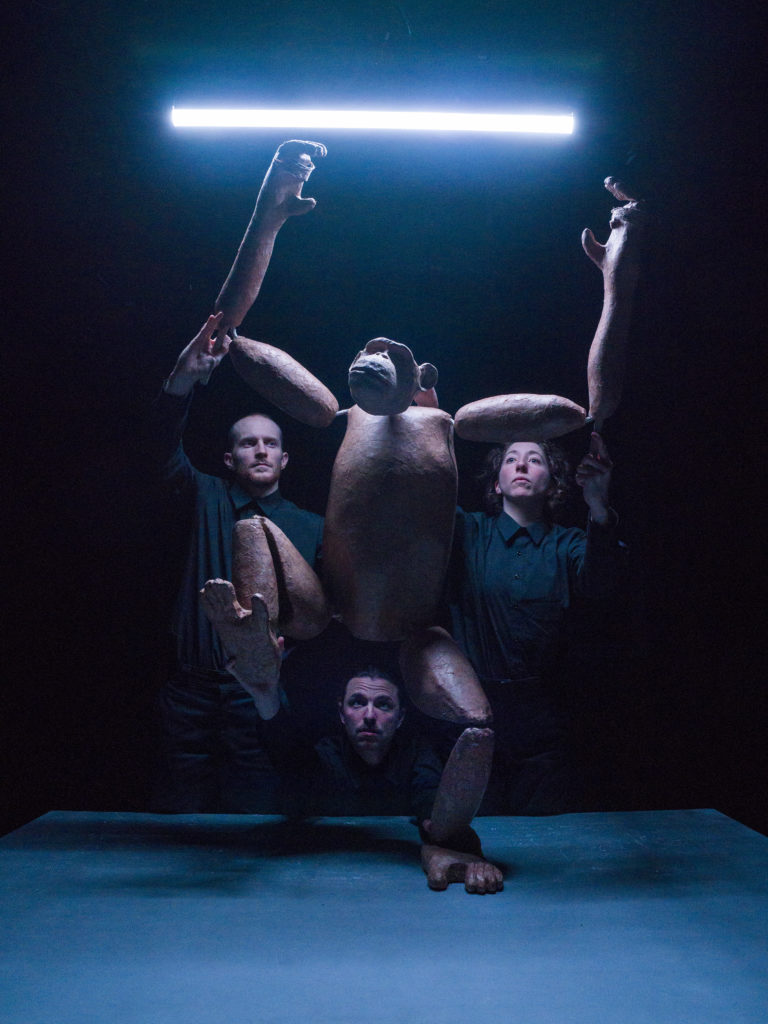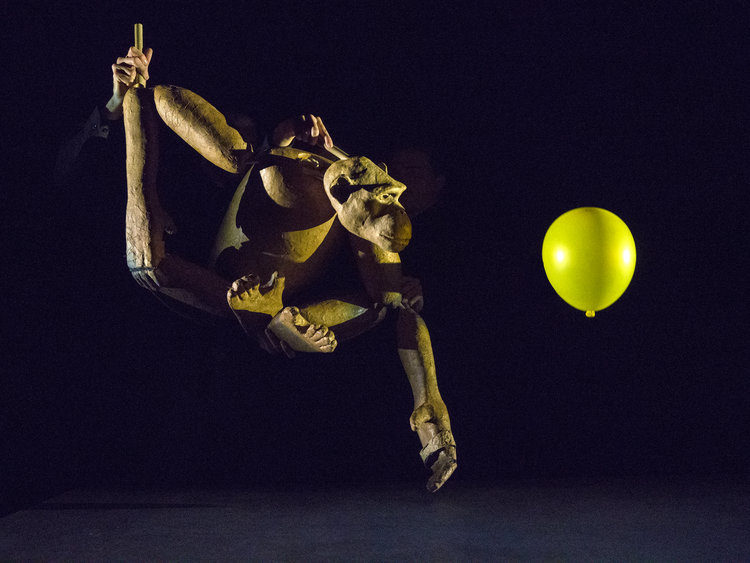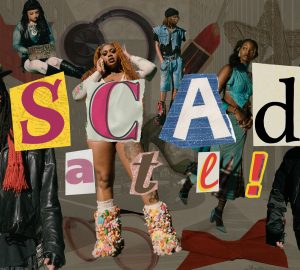Learning about ourselves through puppet performance ‘Chimpanzee’

Step into the mind of something really wild. From Friday, April 8, to Sunday April 10, Atlanta’s Center for the Puppetry Arts swung into performances of award-winning puppet show “Chimpanzee.” This “stranger-than-fiction” play illustrated the lives of primates raised as human children in American households. As time passed and the chimps matured, they were thrown into alternative forms of research, often in abusive facilities. According to the Center for the Puppetry Arts, “Chimpanzee is an hour in a theater, a day in a biomedical facility, and a lifetime in the mind of a chimpanzee.”
The life-sized puppet is animated through Bunraku, a traditional Japanese style of theater, characterized by its three puppeteers dressed in all-black outfits. According to several puppet artists, it’s a difficult process to learn. “It’s tricky,” says Jim Williams, a professional puppeteer with years of experience in Bunraku art. “The story goes that, as an apprentice, you’d begin learning the feet, which takes ten years. Then graduating to the left arm, another ten years, before being allowed the head and right arm.”

The large chimpanzee puppet is conducted by three technicians and directed by the creator of the play, Nick Lehane, an actor and puppet artist from New York City. He’s been working alongside his chimp friend for several years, after creating her out of paper mâche, carved foam, wooden dowels and rope.
Lehane came up with the idea after reading “Next of Kin, My Conversations with Chimpanzees,” written by Roger Fouts. “That served as a launching point, but I’ve always had an interest in non-human animals and the conscious experience of creatures that are so much like us but fall outside of our sphere of ethical consideration,” says Lehane. “Chimpanzees are the non-human animals that are closest to us genetically, and these chimpanzees that were raised as humans in human homes are the creature that is as close as possible to us.”
The medium of puppetry seemed like the only way to tell the story of “Chimpanzee.” “I think puppets beckon us to empathize as a medium,” Lehane says. “As soon as you’re following what a puppet is thinking, or seeing, or smelling or hearing, you’re making this massive empathetic imaginary leap.”
“The audience is not presented with someone pretending to be a chimp, they’re watching what appears to BE a chimp, and in the hands of skilled puppeteers this can be transcendent,” elaborates Therese Aun, the Marketing Director for the Center for Puppetry Arts. “In this particular production, it allows us to get into the head and heart of this creature through non-verbal expressions, movement and interactions.”

Although medical testing on chimps has been declared illegal since 2015, many chimps remain in captivity. According to Science.com, “fewer than half of all former research chimps now live in sanctuaries. The rest are still in scientific facilities.” With the play, Lehane, along with the rest of the cast, hopes to raise awareness about the horrors of unethical animal testing and life for chimps afterward. “There’s been this a-scientific, untrue, and counter-intuitive prevailing cultural belief that human beings are the only things that matter,” says Lehane. “I agree that human beings matter, and I think that the reasons they matter apply to a lot of other beings. It’s the being part, not the human part, that’s important.”
Although Chimpanzee won’t be returning to Atlanta for a while, The Center for Puppetry Arts will be premiering XPT: Xperimental Puppetry Theatre in May, showcasing a variety of work for adult audiences. If you’re interested in buying tickets, click here.

























